Kilimanjaro Climb Cost 2020 – What you need to know
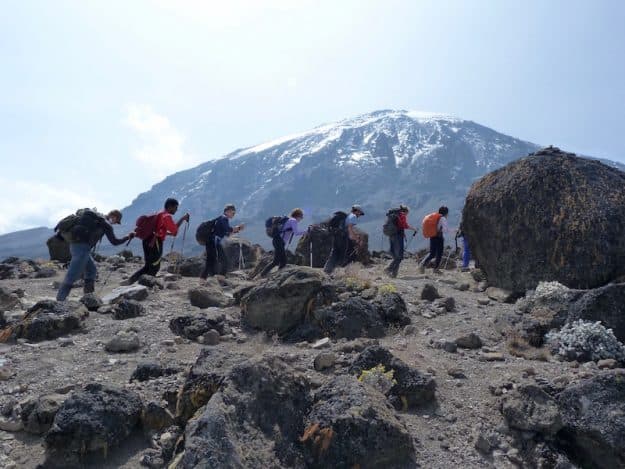
Africa’s highest peak is one of the most popular places to visit in all of East Africa and it’s not hard to see why. It is truly an adventure of a lifetime. For many this is a longtime bucket list item, but how much should you actually pay to fulfil your dream? How much does it actually cost to climb Kilimanjaro?
Today we will talk a bit more about the costs of climbing Kili and the things to take into consideration.
Before I begin, it’s important to understand that choosing your tour operator should not be based on price alone. Ideally you should be searching for a fair and reputable operator that gives you high quality service at a reasonable rate. We will break down the costs so you can make the decision for yourself about what the best deals are and how you can differentiate between a good and bad tour.
Before you start chasing for the cheapest deal to climb Kilimanjaro, I will explain to you why your Viva Africa Tours deal will give you the ideal. The tours we offer are by no means the most expensive, but we are proud to offer great value and service at a reasonable price.
Kilimanjaro Tour Operators
There are over 200 licensed tour operators offering Kilimanjaro treks.
If you walk through Moshi town, almost every second person will claim that they can take you up the mountain.
The truth is: The number of reliable operators going to Kilimanjaro is limited.
What are the costs for climbing Kilimanjaro?
Every tour to the rooftop of Africa is built around these basic expenses for the tour operator:
- Park fees
- Camping fees
- Rescue fees
- Staff wages
- Transportation and logistical costs
- Taxes. What should the price be to climb Kilimanjaro?
Let’s calculate the costs!
The total cost for climbing Kilimanjaro via the 6-day Machame Route
The national park fee for Kilimanjaro is 420USD for a 6 day climb and 250USD for 5 nights of camping. Depending on your group size each climber will be accompanied by 4 porters, a chef and 1 guide.
Local wages for these crew members are about 280USD of your trek. Additionally food costs for yourself and the crew add up to about 250USD. Depending on your route there will be transport costs of around 100USD. Along with these major expenses there are quite a few minor factors like rescue fees, organisational fees, equipment maintenance and taxes.
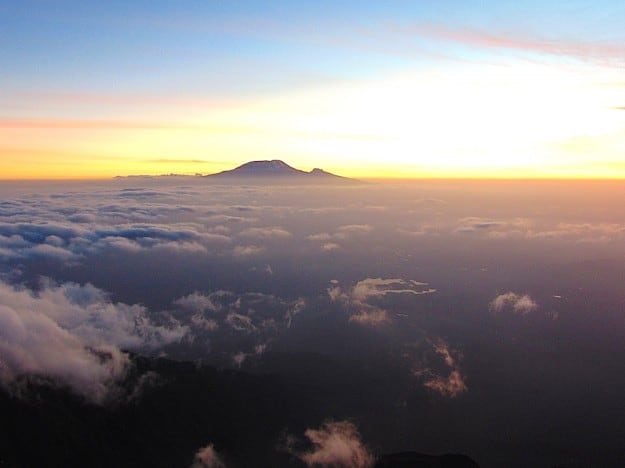
Overpriced Tours or Luxury Operator?
Luxury Kilimanjaro operators lure people with extraordinary success, greater safety standards and similar extras, but will charge very high prices.
No matter what your luxury Kilimanjaro operator is promising, 4000 – 6000 USD for a Kilimanjaro trek on a standard itinerary is simply too much!
Unpractical extras
Some extras offered by luxury providers sound good, but are usually not practical when on the mountain.
Yes, you will crave for a nice and hot shower after your trek. But that doesn’t mean that the portable shower offered will be as useful or as comfortable. Especially at temperatures of -20°C.
Another example is having bottled Kilimanjaro water (the most common bottled water in Tanzania) on your entire trek instead of purified mountain water from small streams. It’s much easier to source water on the mountain than it is for a porter to carry many bottles of water.
Foreign tour operators
One more thing: Most of these luxury tour operators are not based in Tanzania, which means that they’re not focused on Kilimanjaro. They offer it as part of an extensive list of tour offers.
This has three consequences:
- Kilimanjaro is not their daily business and they are not experts
- Your booking will go through the hands of many middle men, before it reaches the guides at the base of Kilimanjaro. This means that even though you are paying more, it may not mean that your guide is being paid well. It could also mean that the promises made by the tour company do not align with the actual tour itself.
- If something goes wrong, your point of contact is far away and could be in a completely different time zone. It is also possible that they may not speak your language. Viva Africa Tours, on the other hand, offers tours for English and German speakers.
Black sheep or low budget tour operators?
For those looking for a low cost Kilimanjaro climb, there is also the opposite end of the price range to consider.
We’re all looking for the best deal and in one way or another. We’re all on a budget of some description. One might be higher, the other might be lower.
The question is: how cheap can your trek be without being a scam? At what cost does the price hunt come?
At this side of the price range, every dollar saved comes at a price. How much is the dollar saved worth? Especially when you’re on a high altitude trek and something goes wrong.
Guides
There are countless mountain guides, who claim to be able to take you to the top of Kilimanjaro.
At the end of the day the good mountain guides, don’t work for questionable companies. They don’t wait for a call for a Kilimanjaro trek next month. They are on the mountain all year round and they climb with the company that gives them the most benefits.
The main difference between the low budget and top guides is experience on the mountain, medical training and the ability to speak good English.
The last thing you want to hear on the day of your summit attempt, starting shortly after midnight, “Oh this is so exciting. My first time” and a few minutes later “I think I lost the path”.
Experience
Rarely I meet travellers, who tell me about their Kilimanjaro trek without mentioning the following phrases “greatest trek”, “hardest thing I have ever done”, “bucket list” , “once in a lifetime” in their story.
It is in any sense an intense experience. It’s out of the ordinary for you, so search for an expert. An incomplete packing list, an incomplete gate registration or camp booking is all it takes for your trip to be cancelled. Therefore: book your tour with a company that has experience and who knows what they are doing!
Equipment
There is a saying, “There is no bad weather, just bad clothing”, and I couldn’t put any better.
The wrong gear or even broken gear can ruin your trip. The lower the budget for your trip, the more likely your company can’t afford to fix the holes in the tent.
It’s also good to make sure that the company checks all your Kilimanjaro mountain gear before the trek, the best companies will advise you of this and ensure that any problems are rectified before the trip even begins.
Treatment of mountain crew – KIATO registration
The registration with Kilimanjaro Association of Tour Operators is a very important indication that the company looks after their guides and porters.
The association ensures that all members pay fair wages to porters and guides. It is the responsibility of each member to ensure that all porters are properly clothed for the extreme temperatures.
They must also provide transport, medical assistance, shelter and the park fees for them. Additionally a registered company provides meals for the entire crew and makes sure that porters don’t carry too much.
Should you climb Kilimanjaro the cheap way?
Climbing Kilimanjaro is not a cheap dream to have, but you can’t put a price on fulfilling a dream.
If you want the best experience and many many memorable moments, it’s very likely that you are going to have to pay a little bit more for this. Cheap doesn’t always mean good and paying extra for a knowledgeable guide and a reputable company is one way to make sure that you have the experience of a lifetime.
You may only get one chance to climb Kilimanjaro so it’s wise to find the right way to invest your money in your climb.
Book with a company that you can trust. A company that looks after you and its staff.
At Viva Africa Tours we ensure this by ensuring that our chefs, porters and guides are experienced and trained to deal with any situation. We also ensure that we treat them as we do our guests.
If you would like to know more about us or our treks, you can email us or check out our contact page!
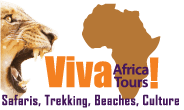

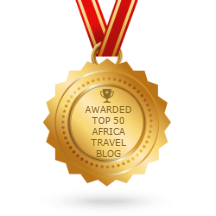






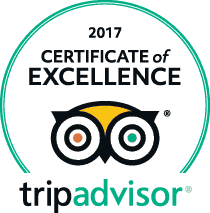
Würde gerne zusammen mit meinen Sohn den kilimanscharo besteigen. Wann ist die beste Zeit dafür.